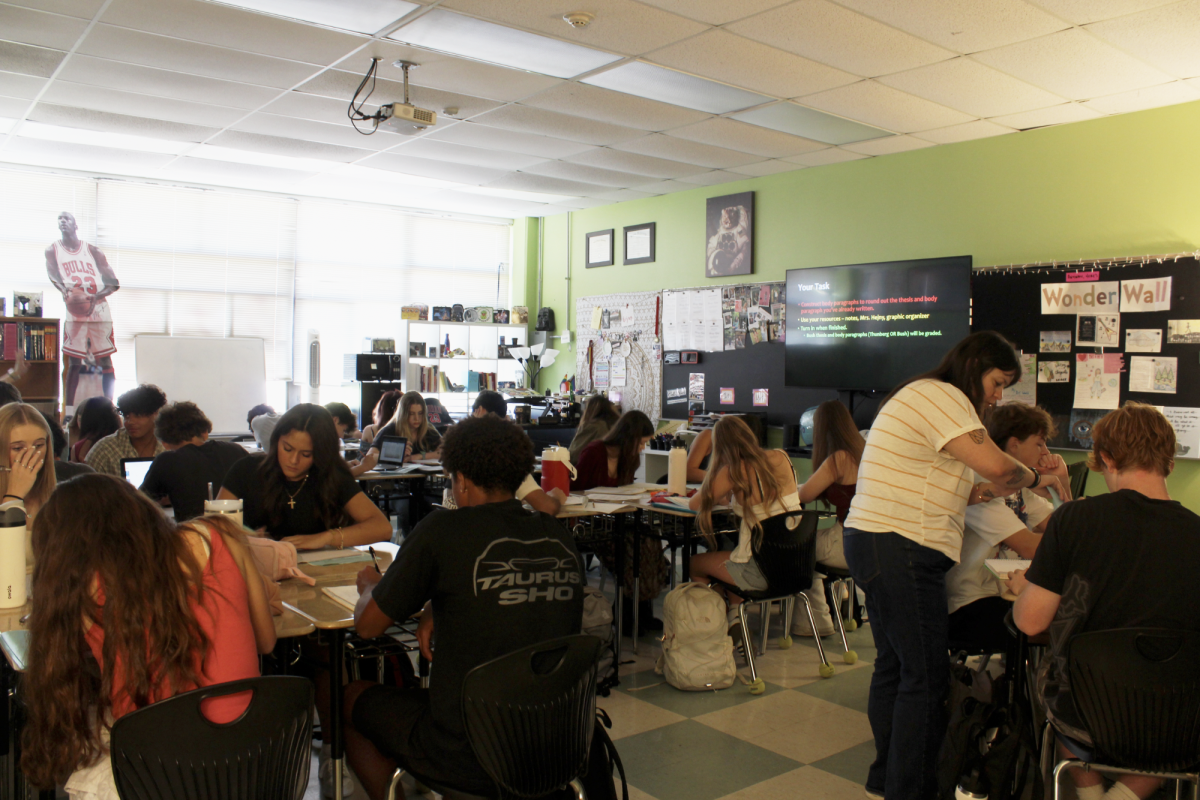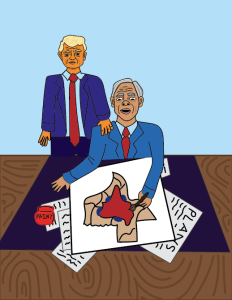Budget Cuts of Fine Arts Trips
January 15, 2019
District attendance and scheduling policies are limiting the amount of field trip absences a student involved in a Fine Arts is allowed. The Orchestra program’s skiing trip to Colorado this upcoming March was recently declined due to the policy changes.
“Field trips, like the orchestra trip for example, there wasn’t necessarily any performance there, or contest where we would be participating,” Principal Robinson said. “So in this case the district has pushed back on some events [that could be] on weekends or breaks.”
The district has a general policy to limit trips to miss only one or two class days.
“The thing about scheduling trips like that is you have to have the right part of the year to plan it,” Robinson said. “For example, the Silver Stars were just recently in the Macy’s Day parade, and [since it was over break] they did not miss any school.”
The skiing trip, scheduled in March, would occur during important review time for end of course exams or STAAR.
“When we know we have things like AP or EOC exams, we don’t want students to miss school right before the exams,” Principal Robinson said. “That is the other reason [scheduling] is difficult,[for] it is really never a good time to miss school.”
In consideration to scheduling, attendance was set to be 96.5% for the school as a whole.
“Trips come across my desk, then they go to the highschool office,” Robinson said. “Once they are approved by the highschool office, they go all the way to the Chief Academic Officer who makes the final decision.”
Students are required to attend 90%of a class’ available periods in order to earn credit.
“First and foremost, we want students to be in class everyday,” Robinson said. “So we typically choose trips that don’t pull students away from class time.”
One student affected is sophomore Mickenna Haynes who is involved in both Orchestra and school volleyball.
“The district said the trip was too long, but I would miss the same amount of time of class I usually do for volleyball tournaments,” Haynes said. “If I know I’m going to miss I’ll get ahead, but I’ll [still] miss some quizzes, maybe a test.”
An extra block period is generally given to students to complete work assigned during an absence.
“I usually have around three hours of make up work,” Haynes said. “It’s hard for math mostly because lectures are not posted online.”
Principal Mark Robinson believes that make up work can never really teach a student as successfully as it would in class.
“So much of what you learn is connected to prior learning,” Robinson said. “If you miss that or learn something in a different way, it can be hard for you to make those connections.”
Another scheduling issue exists in the need for a possible substitute during extended trips.
“There is a little bit of an expense the campus [must pay] for a substitute teacher if classes need to be covered,” Robinson said. “Typically I am more than happy to [pay] because I know the trip is a good experience for our students.”
Despite scheduling difficulties, Robinson believes group trips can be a beneficial addition to a school program.
“Trips like that are good for a number of reasons,” Robinson said. “There is a little bit of a reward after a hard contest season, and team building that comes along with groups getting to do something special like that and share an experience.”
Senior Sophie Bega, a member of the Bowie Orchestra for three years, attended a group trip to New Orleans two years ago.
“Playing in an orchestra is about playing as a team,” Bega said. “The trip promoted teamwork and unity, [leading] to an increase in a sense of playing as a whole instead of playing as an individual.”
The Bowie Orchestra currently has around thirty members that must learn to work as a united group.
“Group trips are an important part of a program because they teach students to be closer and create a better environment,” Bega said. “You become better friends and ultimately a better program.
Junior Emma Davis is an Orchestra member who also feels the trips are a great bonding and learning experience.
“When we were in New Orlean were were going to perform at the World War II Museum, and when we went to Disney we had the opportunity to [record] music for a movie,” Davis said. “These trips encouraged a lot of bonding as we [talked] about things other than orchestra and school.”
Though field trips are an important aspect to a program, new policies encourage a trip to include both performance and entertainment aspects.
“The district is saying that when at all possible they want students to be in class,” Robinson said. “We approve [these trips] whenever we can, but usually it is just about scheduling.”







